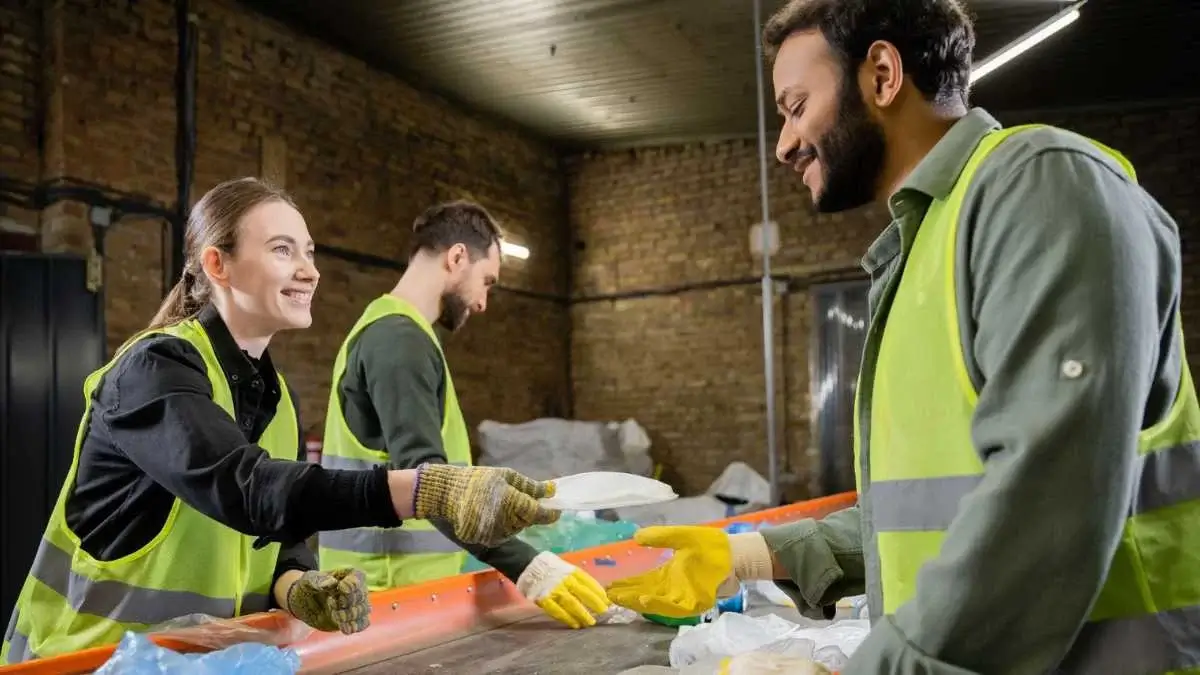GENERAL
Why Waste Treatment is Good

In contemporary society, waste treatment has become increasingly important in relation to everything; the environment, economic viability, and even public health.
Investing in the infrastructure of any nation must consider the components of modern living which include the rampant waste production.
This must be accompanied by effective measures to mitigate pollution, preserve resources, and foster the circular eco-system model.
This blog aims to describe innovation in waste management technologies and their benefits.
Defining Waste Treatment
Waste treatment is the handling processes of waste materials which include changing them into useful matter, neutralising harmful components as well as their destruction or safe disposal.
Taking these actions tends to alleviate the adverse effects of waste on the environment, potential threats to health, and promote resource productivity.
Capabilities in waste treatment methods may generally be divided into four groups: physical, chemical, biological, and thermal. Each having specific uses and advantages that differ from others.
Common Procedures for Waste Treatment
As stated in waste treatment, it prioritises the processes of managing, minimising, and disposing of waste. These procedures can be grouped together, such as physical, chemical, biological, and thermal treatment.
Additionally, while the treatment system needs to be done by approved waste disposal services, they can usually be applicable to a range of issues, from industrial wastewater treatment to green waste.
Physical Waste Treatment
In all methods of physical treatment of waste, the only action performed on the waste is changing its form or state, not its chemical structure.
One method of physical treatment that has gained a lot of popularity is sorting. Sorting involves distinguishing different kinds of waste like plastic, metals, papers, organic waste, etc., and recycling them.
Waste reduction is another method used in changing the form of waste to facilitate transportation.
Shredding is performed on bulk waste to reduce them to particles that are smaller in size. This also makes them easier to handle and treat hence increasing efficiency in further treatment.
Filtration and sedimentation are processes that enhance the quality of water by removing suspended solids and associated contaminants and pollution from water.
Chemical Waste Treatment
Less hazardous substances are treated chemically by neutralising or converting them into a safer substance.
These methods are aimed at changing the waste that is considered hazardous. In the case of acidic or basic waste, a neutralisation loop that is a deactivating mechanism needs to be constructed.
In the chemical industry, oxidation and reduction are very common and are done in the manufacturing of chemicals.
Environmental pollution is increased from heavy metals, and in order to reduce them, we carry out an extraction and removal procedure called precipitation.
Disinfection is also a chemical type of treatment that takes care of pathogenic microorganisms in municipal and medical waste using disinfectants like chlorine and ozone.
Biological Waste Treatment
Biological waste treatment refers to the process in which the body works to convert organic waste into useful by-products.
Composting is perhaps the most common case since it relies on microorganisms to break down organic waste into compost which fertilises soil and promotes plant growth.
Another case example is anaerobic digestion. It is the process of breaking long chains of organic waste without oxygen to create biogas and digestate which can be used in energy and agriculture.
Another example includes bioremediation where soil and water pollutants are degraded using bacteria, fungi, and plants.
This method greatly helps to rehabilitate the environment since it employs biological means to remove the harmful substances.
Thermal Waste Treatment
Thermal waste treatment shows the application of heat to waste in order to reduce its volume and recover energy or neutralise some hazardous materials.
The most used form of waste treatment is incineration. This involves burning waste at extremely high temperatures to produce heat energy and significantly reduce the amount of waste sent to landfills.
High temperatures with no oxygen present will initiate the breakdown of organic waste, also known as pyrolysis.
Pyrolysis is useful to create biochar, oil, and syngas because these can serve as alternative sources of energy.
The use of high energy plasma to break down waste on a molecular level is known as plasma arc technology. This technique minimises the environmental footprint and is considered one of the advanced methods of thermal treatment.
These methods are effective for both hazardous and non-recyclable waste as pollutant emissions are greatly reduced.
Choosing The Right Waste Services
These strategies incorporating waste treatment technology eliminate waste in an eco-friendly manner while decreasing pollution and recovering valuable materials.
While deciding on a specific method, the type of waste to be treated, the environmental consequences, financial implications, and management policies all play a critical role.
Advantages of Efficient Waste Treatment
Following efficient waste treatment practices can help to manage everything in between solid waste and sewage treatment for treated wastewater.
What’s more, these techniques go beyond human safety requirements and extend to environmental standards that are both efficient and able to save both time and money.
Environmental Protections
The treatment of waste effectively helps reduce the volume of waste sent to landfills, the emission of greenhouse gases, and the pollution of soil and water.
Resource Preservation
Recycling and recovering materials allows for the reduction in the consumption of primary materials, thus conserving resources and enabling sustainable production.
Energy Generation
“Waste-to-energy” technologies, such as turning waste materials into electricity, biogas, or biofuels, reduce the dependency on fossil fuels by converting unused materials into usable energy.
Economic Development
The efficient use of these wastes leads to greater productivity in the waste management industry, which increases the level of employment in the collection, processing, recycling, and renewable energy industries, boosting economic growth.
Improved Public Health
Proper waste management plays a key role in reducing pollution, exposure to hazardous substances, and the transmission of diseases from contaminated environments.
Challenges Associated With Waste Management
There are some challenges with waste services that cannot be avoid, which is part of why a risk assessment and monitoring program is so essential.
That being said, the potential risks are best mitigated by working with a team of experts who are capable of managing different waste types.
Excessive Costs
The advanced regions spent a lot of money developing and maintaining modern facilities for the treatment of waste. This makes it very difficult for the developing regions to effectively create systems.
Public Education
Information on how to properly dispose of waste and even recycling is incredibly inefficient both at the individual and business level, which makes waste management systems inefficient.
Technological Constraints
Some technologies are unable to treat certain types of waste like mixed plastics or hazardous materials due to complex construction.
Illegal Dumping
The complete lack of guidelines in waste disposal practices, including illegal dumping, contributes to the degradation of the environment, health risks, as well as posing a threat to waste management.
Closing Thoughts
Achieving economic and environmental sustainability as well as protecting public health require effective waste treatment.
By practicing sustainable waste management, innovating new technologies, and adopting new strategies, we can reduce pollution and conserve resources.
Governments, businesses, and individuals are responsible for working together and ensuring proper waste treatment is done so that we leave a cleaner and healthier planet for future generations.
-

 BIOGRAPHY7 months ago
BIOGRAPHY7 months agoBehind the Scenes with Sandra Orlow: An Exclusive Interview
-

 HOME1 year ago
HOME1 year agoDiscovering Insights: A Deep Dive into the //vital-mag.net blog
-

 HOME1 year ago
HOME1 year agoSifangds in Action: Real-Life Applications and Success Stories
-

 BIOGRAPHY1 year ago
BIOGRAPHY1 year agoThe Woman Behind the Comedian: Meet Andrew Santino Wife




























